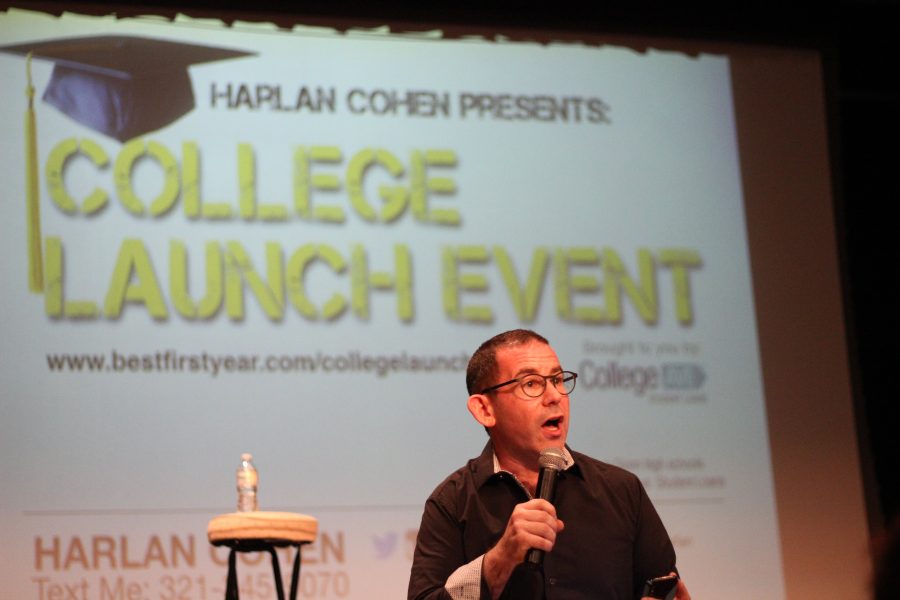In light of the college application frenzy, Paly students and parents attended the “Happy, Healthy, Almost Stress-Free College Planning” talk hosted by author Harlan Cohen Monday night in the Haymarket Theater to learn about strategic approaches to navigate the college search and selection process.
“Parents are so engaged, and I’m one of them, so how do we be better equipped to engage with supporting the journey to find the answers to what our kids want?” Cohen said.
Cohen, a New York Times bestselling author, emphasized how students and parents should prioritize what they want for the student’s college experience and less on “being wanted.”
“The process is very overwhelming, so it’s important to figure out what you’re looking for before you jump into it.”
Story continues below advertisementHarlan Cohen
Cohen began the talk by asking parents what they wanted to get out of his presentation and how he could help them achieve that goal before transitioning into an introduction of his biography and past and his college experience.
“I always knew I wanted to go to a big school because all my family members went to a big school,” Cohen said. “I didn’t even consider smaller schools.”
But Cohen explained how he quickly became miserable at his dream school due to the challenges transitioning socially and emotionally.
“I was miserable, depressed and I knew I had to get out of there,” Cohen said. “So I transferred to a familiar place, Indiana University, where my brothers went. I found my people, and I was much happier.”
Following the discussion of his college transition experience, Cohen suggested that students use a five-pronged framework to help them transition to college, uncover their college priorities and find their “places, people and patience.”
“Students and parents should consider the social, emotional, physical, financial and academic aspects to find a fit,” Cohen said. “The students who struggle have the same thing: they don’t have their people, they don’t have their places, so they panic.”
According to Cohen, students should reach out to older students they look up to and believe are similar to them — socially, emotionally, physically, financially and/or academically — so they can learn how those students addressed their challenges.
“Ask them how they dealt with $200,000 of student loan debt; ask them how they chose their classes; ask them how they got involved on campus; ask them these important questions that you’re wondering about because they had to deal with them too,” Cohen said. “People want to help; you just have to ask.”
Junior and attendee Neive Wellington said Cohen’s analysis was beneficial for her.
“I think the speaker’s approach to the college application process was helpful in that he encourages students to dream big and apply to colleges where we can picture ourselves thriving.”
Junior Neive Wellington
But according to junior Raj Sodhi, the event was not as helpful as he had hoped.
“I thought he said the same things over and over,” Sodhi said. “He wants to appeal to a huge audience, so his messages are super broad and vague.”
Throughout the talk, Cohen reinforced the importance of remembering that everyone is a valuable individual no matter where they attend college.
Cohen said, “No matter where you go, it’s going to be OK.”

